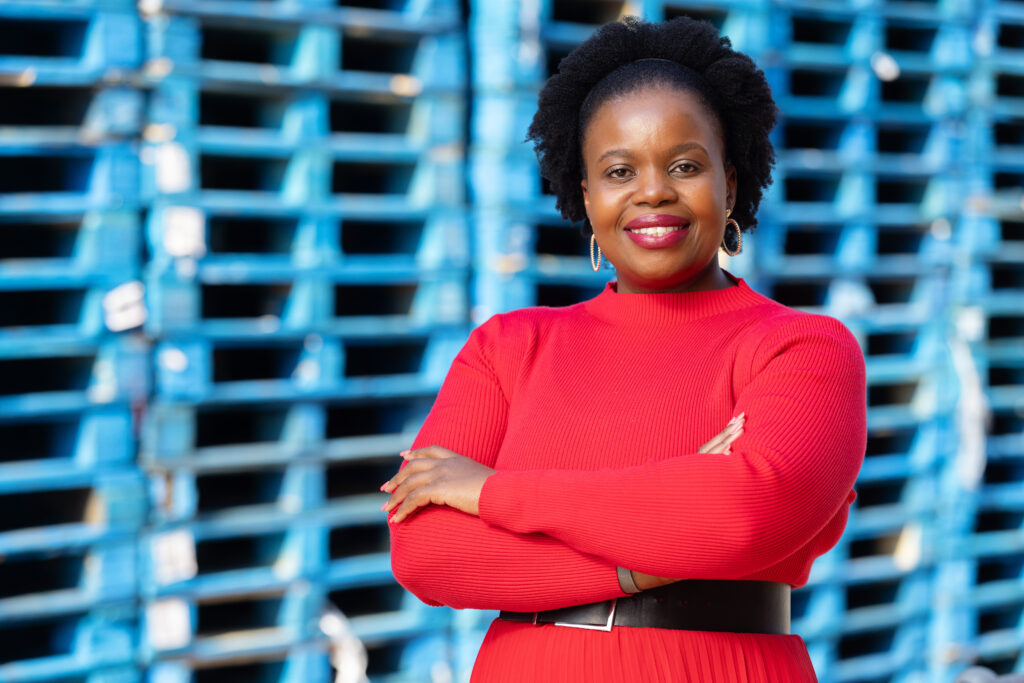Commitment and intention are key to what’s needed today in Africa’s extensive, and growing supply chain industry. This pledge would be towards creating diverse and inclusive organisations that strive to elevate women in leadership positions whilst focusing on sustainability and the building of a female talent pipeline to ensure robust and diverse future leadership opportunities.
However, in 2024 this is still not the case – albeit, with some notable instances of progress.
A recent finding by a survey conducted by the Professional Body for Supply Chain Management (SAPICS) revealed that not only is there a lack of information on women in leadership but there are even fewer insights specific to women in supply chain leadership. Many of these women participants hailed from South Africa, with a representation of 83%, while the balance represented by Zimbabwe, Botswana, Kenya, Mozambique and Eswatini – amongst others.
As we commemorate Women’s Month in South Africa under the theme: “Celebrating 30 Years of Democracy Towards Women’s Development”, it’s time to reflect but more importantly to action real change ensuring that women 30 years from now can reflect on today’s generation with pride.
For this to happen, organisations need to lead by example in ensuring that senior leaders actively support and promote gender diversity. Studies have shown that companies with diverse leadership teams are more likely to outperform their peers in terms of profitability and productivity. Additionally, gender diversity can improve decision-making processes, enhance employee engagement, and lead to better customer insights and satisfaction.
The centrality of women in achieving this is well documented through various studies that have shown how women in leadership foster diversity by promoting a more inclusive and equitable work environment.
A recent Gartner study attests to this. In its eighth annual Women in Supply Chain Survey, it was shown that women now make up 41% of the supply chain workforce (globally) up from 39% in 2022. However, according to the report, “frontline representation continues to lag with women filling just 31% of these roles”.
On a positive note, 26% of C-Suite and executive level positions are now filled by women – up from 19% in 2022. It is evident that more women are becoming key role-players and decision-makers.
Another important aspect is that gender-diverse teams often exhibit better collaboration and communication, leading to more effective problem-solving. While growth is crucial, it is also important to build a supportive network that will encourage women to organise and join professional networks in the supply chain sector.
The Good News
In the face of numerous barriers such as the outdated notion that the supply chain is a male-dominated industry, as well as gender bias and discrimination, there is positive momentum. These cases represent not only future of the supply chain, but the key role of women within it.
There have been a few emerging trends and the first one, which is also very key to us as a business, is sustainability. Gender-diverse teams are good at driving sustainable practices and green supply chain initiatives. Research has also shown that women leaders are increasingly involved in the digital transformation of supply chains, advocating for the adoption of advanced technologies such as AI and blockchain which lead to process optimisation and the delivery of efficiencies.
Another trend that cannot be forgotten is how resilient diverse leadership is crucial in developing resilient supply chains that can effectively manage risks and minimise disruptions. Women leaders bring unique insights into consumer behaviour which in turn help shape customer-centric supply chain strategies. Talent development is another trend where there is a growing focus on nurturing talent and creating inclusive talent pipelines to ensure a steady flow of diverse leaders into the future.
Representation matters and where people don’t see those who look and sound like them, mentorship and sponsorship opportunities tend to be limited. Since there are very few women in leadership positions within this sector, there is generally a lack of mentorship and sponsorship, resulting in women having no mentors they can identify with and no sponsors who can advocate for their advancement.
Our DEI efforts as CHEP SSA have really centered on the empowerment of women and as a result we have several programmes that we have implemented. Our flagship programme, “Women in Supply Chain” is aimed at empowering women with both the technical and soft skills to excel in the sector, assisting our business in the process of building a healthy talent pipeline. We also offer bespoke coaching for women in leadership, giving them the skills to take their growth to the next level. Our bursary programme is key to providing growth opportunities for women in leadership and our robust talent management framework assists in pro-actively managing talent with the aim of achieving gender diversity within our leadership structures.
Lastly, it is critical for organisations to measure and report on diversity initiatives to ensure accountability and continuous improvement. Equity must be weaved into every step of the hiring process and ensure that unconscious bias is minimised. It is further suggested that businesses should be transparent and report on diversity metrics thereby holding leadership accountable for progress.





